
Electronics and communication engineering is like having a big menu with many choices for your career. There are a lot of electronics and communication engineering jobs. This field covers radio, internet, satellites, and wireless phones. You learn to make these things and study, analyse, and improve how you already communicate using them.
What are Opportunities for Electronics and Communication Engineers?
According to The Bureau of Labour Statistics, ECE engineers will have a 7 percent year-on-year demand. The recruitment figures will reach over 345,800 by 2026, which is a massive number and a reason enough for aspiring engineers to pursue a career in ECE.
Let’s look at some of the best electronics and communication engineering jobs.
- Wireless Communications Engineer
Role as Wireless Communications Engineer
After graduating, one of the best career options is to be a Wireless Communication Engineer. As Wireless Communication Engineers, you create, set up, and care for wireless communication systems. They ensure wireless connections work well and are dependable for different uses and businesses. They deal with technologies like mobile networks, Wi-Fi, Bluetooth, satellite communications, and so on.
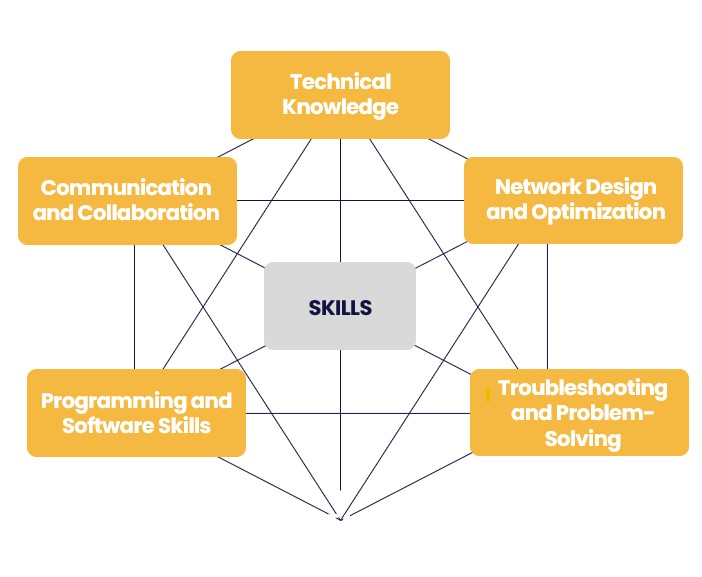
Wireless Communications Engineer Salary
The salary for a Wireless Network Engineer in India varies from ₹1.7 Lakhs to ₹13.5 Lakhs, with an average annual salary of ₹5.0 Lakhs.*
*Source - Ambitionbox
- Hardware Engineer
Role as Hardware Engineer
Hardware Engineers are the ones who plan, create, and check the parts and systems that make computers run. This makes it an interesting career option. They concentrate on computer systems, built-in systems, and electronic gadgets, getting involved in making hardware, like designing circuits, arranging circuit boards, making prototypes, testing, and fixing issues.
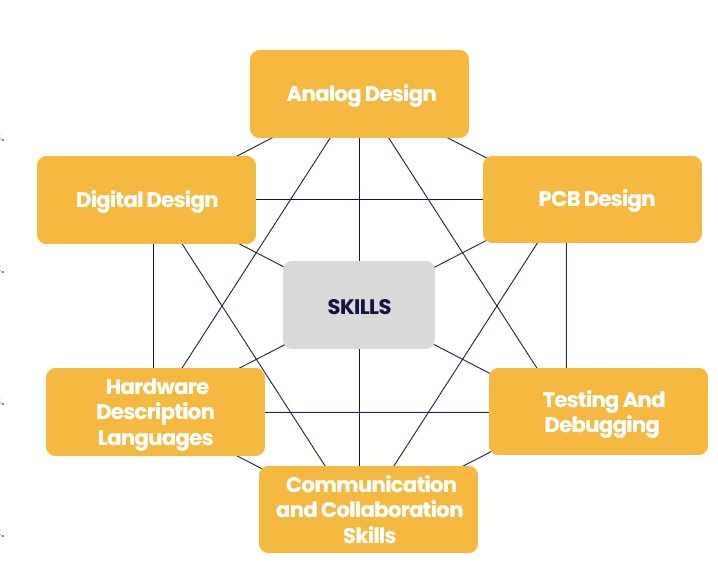
Hardware Engineer Salary
The salary for a Hardware Engineer in India ranges from ₹0.8 Lakhs to ₹12.9 Lakhs, with an average annual salary of ₹6.9 Lakhs.
*Source - Ambitionbox
- Telecom Engineer
Role as Telecom Engineer
A Telecom Engineer manages the analysis and design of new technologies to benefit customers and researches ongoing services to improve facilities. Telecom is crucial in almost every industry globally, making it a highly sought-after field known for its reliability in the years to come.
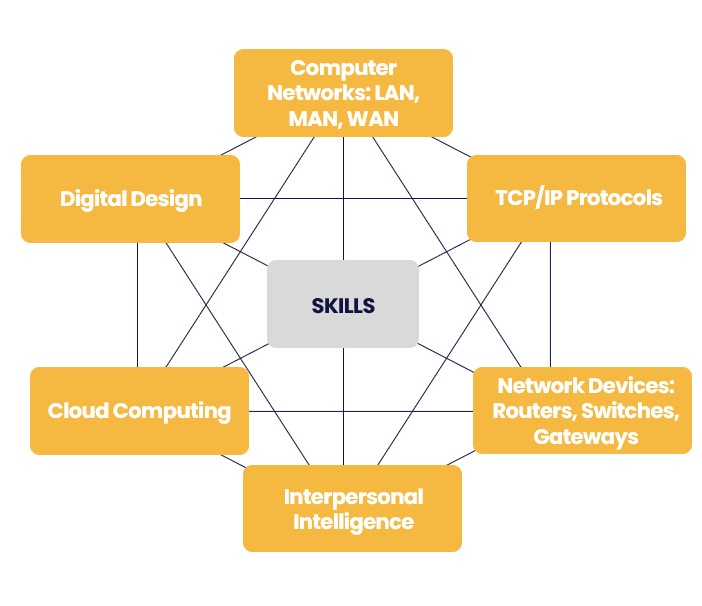
Telecom Engineer Salary
The salary for a Telecommunication Engineer in India ranges from ₹1.2 Lakhs to ₹15.0 Lakhs, with an average annual salary of ₹4.6 Lakhs.
*Source - Ambitionbox
- Software Analyst
Role as Software Analyst
A software analyst's role involves running, designing, creating, and testing new and existing software for an organization. This includes acting as a mediator between software users and developers. The primary responsibility is to adapt the software's algorithms to meet customer requirements and continually update or modify them for enhanced user-friendliness. Individuals in this role may explore career options in project management, quality assurance, or system architecture, leveraging their expertise in software analysis to contribute to various aspects of the software development lifecycle.
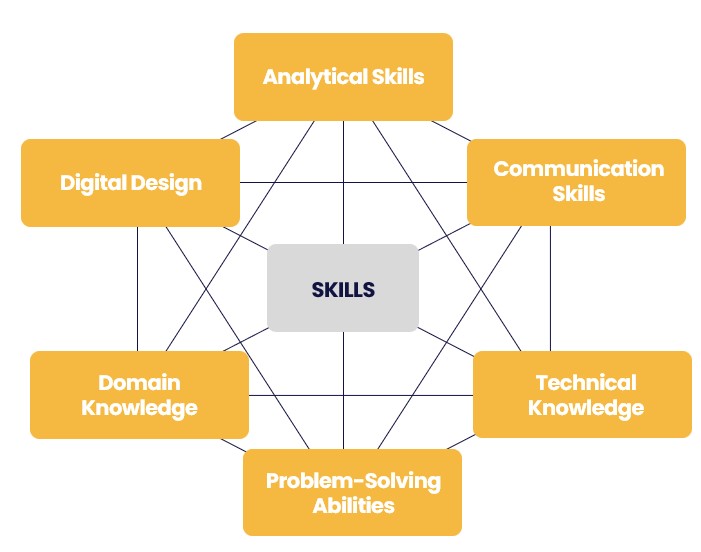
Software Analyst Salary
The salary for a Software Analyst in India varies from ₹2.5 Lakhs to ₹12.0 Lakhs, with an average annual salary of ₹6.8 Lakhs.
*Source - Ambitionbox
- Robotics Engineer
Role as Robotics Engineer
Robotics engineers are responsible for designing, developing, and taking care of robotic systems. They combine mechanical engineering, electrical engineering, computer science, and artificial intelligence principles to create smart machines.
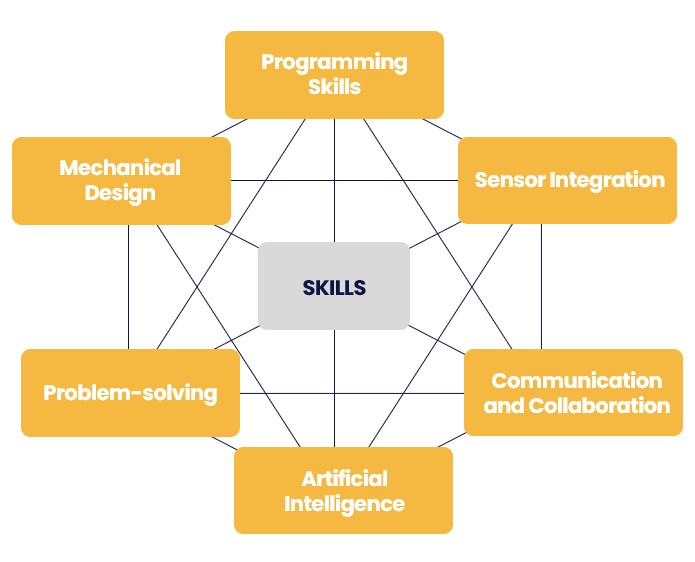
Robotics Engineer Salary
Robotics engineering salary in India ranges from ₹1.8 Lakhs to ₹8.2 Lakhs, with an average annual salary of ₹3.8 Lakhs.
*Source - Ambitionbox
Job Opportunities for Electronics and Communication Engineers in the Government Sector
Public service companies recruit electronics and communication engineers based on written examinations, GPAs, and skills. The standard job profile is that of a technician, and the organisations that hire include BSNL, MTNL, ISRO, DRO, and ONGC, among others. Electronics engineers can also find jobs in financial services, such as banking, as technicians or junior engineers. Look for jobs in government colleges and universities where you can teach or research. After finishing this degree, you can do either an M.Tech or an MBA after your B.Tech. This will increase your chances of getting a job.
Top Companies Hiring Electronics Engineering Graduates in India
What are the other options to explore after Electronics and Communication Engineering?
Higher Education
Going for higher studies will make it easier for you to climb the success ladder. Not only will you become more qualified, but the chances of getting good jobs after they finish studying will also be high. There are many fields where students can land good jobs. They include
- Nanotechnology
- Software Engineering
- Embedded Systems
- Information/ Cyber Security
- VLSI Design
Qualification Criteria
Students should have a bachelor's degree in electronics and communication engineering, electronics and instrumentation, or electrical engineering. They should also have scored at least 60% marks and have a valid GATE score.
Career Opportunities after Higher Studies in Electronics and Communication
Students can find job opportunities in both private and government sectors. Candidates must appear for UPSC or PSC entrance exams to secure a government job. UPSC conducts this exam annually, while other PSCs have their exams to fill job vacancies. Information about these exams is published in leading newspapers. Some potential employers for Electronics and Communications graduates include:
- Atomic Energy Commission
- Central Electronics Limited
- Defence Sectors
- Directorate General Posts and Telegraphs Departments
- Hindustan Aeronautics Limited
- Indian Railways
- Ministry of Civil Aviation
People with a master's degree in this field can start their own businesses, like electronic stores or repair/assembly shops. Electronics is crucial in today's industry, so the profit is likely to be more than the cost. Banks and small-scale industrial development corporations are willing to provide financial assistance to those who want to kickstart their own businesses.
Certification Courses
After completing a BTech, certification programs offer an excellent opportunity to enhance skills and boost your career quickly. These programs require less time and are more cost-effective than alternative study options. A typical certification program usually ranges from nine months to 1.5 years.
Some of the certifications you can go for are:
- VLSI certification if you want to work in the Semiconductor industry
- Embedded training is preferable for interest in robotics
- CCNA certifications to work in IT engineering
- Matlab/Simulink training to work in Signal processing/telecom/control system industries
Conclusion
There are many Job Opportunities for Electronics and Communication Engineers in India. If you study ECE, you can choose from various careers like working with wireless communication, handling hardware, being a telecom engineer, software analyst, or even a robotics engineer. The opportunities to specialize and grow in this field are plenty. ECE graduates are ready to face the industry's challenges because they have the right skills. As technology improves, the need for skilled ECE professionals is increasing, making it a promising and exciting field for those who love innovation.
